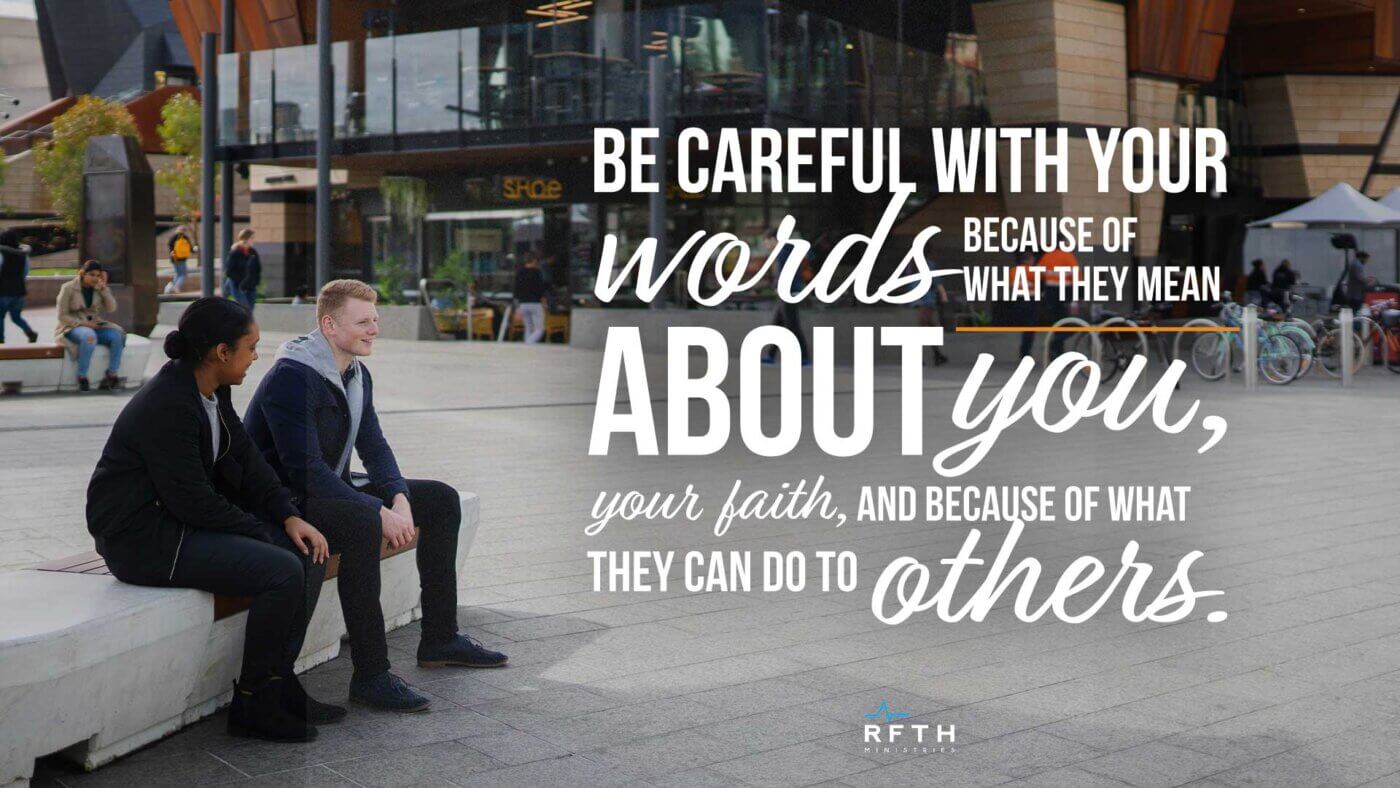
Written by Michael Kelley, Guest Contributor
“…but no one can tame the tongue. It is restless and evil, full of deadly poison.”
James 3:8
On two occasions this week, my wife and I have reminded each other to watch what we say.
On each occasion, we asked each other for wisdom on how to respond to a particular situation, and we repeated the same phrase in response to one another:
“Don’t say anything you will have to apologize for later.”
I think there is wisdom in that. And indeed, that’s a good reason to be careful with your words because there is no edit button on our conversations. Words are the bell that can’t be unrung. You can try and walk things back, try and explain yourself, and even try to justify the words you said, but in the end, it’s just there. That comment. That remark. That tone. It’s there. Always. And you don’t want to be embarrassed later by what you said at the moment.
But there are other reasons to watch what we say besides avoiding embarrassment —deeper reasons, perhaps even more important ones.
Here are three of them:
1. Our words reflect our hearts.
A friend recently told me that what’s down in the well comes up in the bucket. When we find ourselves spouting off in anger or gossip or slander, it’s not because we were just caught up in the moment; it’s because that’s what’s been down in our hearts for a long time:
“How can you speak good things when you are evil? For the mouth speaks from the overflow of the heart. A good man produces good things from his storeroom of good, and an evil man produces evil things from his storeroom of evil” (Matthew 12:34-35).
2. Our words are more powerful than we realize.
The second reason we should be careful with our words is that rarely do we grasp just how much power they have:
“No foul language is to come from your mouth, but only what is good for building up someone in need, so that it gives grace to those who hear” ( Ephesians 4:29).
Our words are like water. Water is the stuff of life, but water can also be incredibly destructive. Similarly, our words are incredibly powerful to destroy or build up, especially those we claim to love. When dealing with something that powerful, we would be wise to be careful.
3. Our words authenticate our faith.
The Book of James is one of the most direct books in the entire Bible. In a mushy kind of world where there are increasingly blurred lines on everything, it’s refreshing to find a text of such absolutes. Refreshing, if not at least a little disconcerting:
“Those who consider themselves religious and yet do not keep a tight rein on their tongues deceive themselves, and their religion is worthless” (James 1:26).
What validates the reality of our faith? Of our religion? According to James, it’s whether or not we have a tight rein on our words. It’s whether or not we are in control of what we say. So if we find ourselves constantly unable to hold back hateful or spiteful words, we have something to fear.
So watch what you say today, friends.
Be careful with your words. They can say a lot about you and your faith and can harm others.
DIG DEEPER
Read “Your Words Can Alter Someone’s Life” by George Wright






